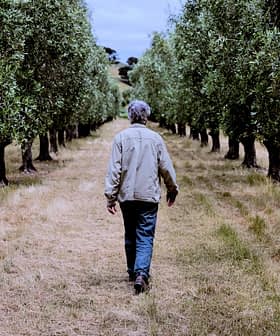
While Australian olive oil producers celebrated the adoption of a new set of voluntary standards that will make it more difficult for European exporters to do business there, its sibling on the other side of the Tasman Sea isn’t along for the ride.
What started out last year as the Draft Australian/New Zealand Standard for Olive Oil and Olive-Pomace Oil dropped the “New Zealand” part when it was finalized Wednesday by Standards Australia.
In an undated opinion piece for a New Zealand supermarket industry magazine, Katherine Rich, CEO of the New Zealand Food & Grocery Council said grocers there feared that if New Zealand went along and adopted the new standards, olive oil producers from the Mediterranean, which provide over 95 percent of all olive oil sold in New Zealand, “will struggle to meet the new rules as drafted.“
That wouldn’t upset Australian producers who pushed for the new standards. Like their U.S. counterparts, Australian olive oil has been capitalizing on the growing consumer mistrust brought on by highly-publicized studies critical of imported olive oils and sensational broadcasts like the primetime segment this week on Australia’s Today Tonight with Australian Olive Association President Paul Miller. Now with its new home field advantage, Aussie EVOO is on a serious roll.
Unless major Australian retailers choose to ignore the voluntary guidelines — unlikely according to most industry insiders — foreign producers and bottlers will need to change the way their olive oil destined for Oz is labelled: Words like “Pure” and “Light” are not allowed, refined olive oils need to be clearly marked as such, and country of origin claims have to be substantiated, among other new rules.
New Zealand’s 4.2 million population makes it about the size of the state of Kentucky, not exactly a do-or-die market for Mediterranean olive oil producers. Australia, on the other hand, with 22 million and a growing appreciation for good olive oil, is not a market Old World producers want to see slip away.
Australian olive oil expert Richard Gawel commented in a Twitter message that New Zealand’s supermarket industry stance would have been bolstered by the support of the International Olive Council and importers — tough opponents requiring a concerted effort New Zealand olive oil didn’t seem to have. Gawel called New Zealand’s decision to pass on the new olive oil standards the product of “supermarket interests over consumers.”
Olive oil producers in Australia and New Zealand, which are not IOC member countries, have long held that existing IOC rules do not adequately protect the region’s consumers and producers.
In February, the International Olive Council (IOC) issued a statement recommending a reconsideration, calling parts of the proposed standards possible “barriers to international trade” that could actually make olive oil adulteration “easier”.









